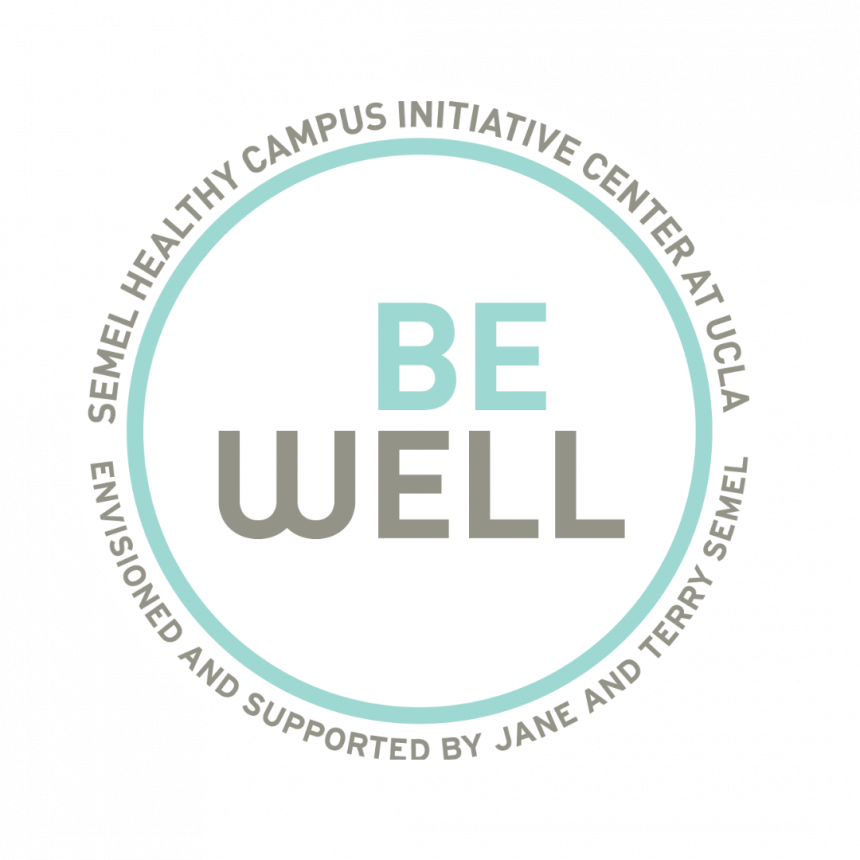Five Reasons Why Green Spaces are Awesome
Recently at our annual Celebration, the Healthy Campus Initiative officially launched the Jane B. Semel Community Garden and Living Amphitheater located at Sunset Recreation Center, adding a new green space to UCLA’s campus. Opening the living amphitheater was a dream come true for the Healthy Campus Initiative, but it is also a valuable addition to UCLA’s campus that holds amazing potential. Read on to find out 5 reasons why green spaces like the Living Amphitheater are awesome for our well-being.
1. Green Space Boosts Attention
In this study, college students were assigned to three different conditions: nature walk, urban walk, or relaxing with a magazine in a comfortable room with light music. Afterwards, students were tested on their capacity for direct attention. The study found that those who went on a nature walk performed significantly better on the attention tests than those who went on an urban walk or relaxed indoors.
2. Green Space Encourages Physical Activity
Whether it is something as casual as taking a walk or something more intense like hiking, green spaces provide an environment that is conducive for physical exercise. As obvious as it may sound, having easier access to green space has a positive association with an individual’s level of physical activity. For instance, this study found that people who live closer to parks are “more likely to achieve physical activity recommendation and less likely to be overweight or obese.”
3. Green Space Improves Mental Health
One of my favorite things to do on campus is smelling different trees and flowers. The fresh smell of newly cut grass and sweet fragrance emitted by different flowers make me smile as I walk to my classes.
Research also demonstrates that green space provides benefits to mental health. This study found that among monozygotic or identical twins, those who had greater access to green space had fewer depressive symptoms than their twin counterpart with less access to green space. This is significant because by studying identical twins, the researchers were able to control for genetic and childhood environment factors. The reasons for why green space may benefit mental health are not yet clear, but it is promising that exposure to green space has a positive influence on our mental health.
4. Green Space Cleans the Air
This may not be surprising that trees can improve the air quality. Here are the details:
According to the report from the Forest Service Division of the U.S. Department of Agriculture, in areas with complete tree cover, trees can remove as much of air pollutants as 15% of the ozone, 14% of the sulfur dioxide (SO2), 8% of the nitrous dioxide (NO2), and 0.05% of the carbon monoxide (CO) from the air. This is because vegetation, especially trees, can act as natural filters for the air pollutants. Thus, increasing green space will help us breathe well.
5. Green Space Helps Us Eat Well
Green space, especially community gardening has shown to improve food security. According to this study, people were 3.5 times more likely to consume at least five servings of fruit or vegetable on a daily basis if they or their family members were involved in a community garden in the last 12 months. Another study also suggested that gardening increases the likelihood of people meeting the national recommendation for fruit and vegetable consumption. More specifically, 56% of those who participate in a community garden met the recommendation, compared to 37% of those who have a home garden and 25% of those who have no gardening involvement.
There are numerous places on campus where we can reap these benefits of green spaces. There is, of course, the newly opened Living Amphitheater Garden at Sunset Rec. But if you are on campus and just want a quick stroll to enjoy the nature, consider visiting Botanical Gardens in South campus or the Sunken Gardens and Sculpture Garden in North campus. If you have any other suggestions for green space on and around campus, please share it with us by commenting below!
Miso Kwak is an undergraduate student at UCLA majoring in Psychology with a double minor in Disability Studies and Education Studies. In addition to blogging for the UCLA Healthy Campus Initiative, she plays the flute with the UCLA Woodwind Chamber Ensemble. Outside of school, she works as a mentor for high school students through Accessible Science, a nonprofit organization that facilitates science camp for blind youth.



